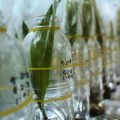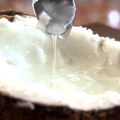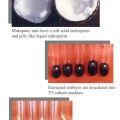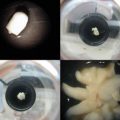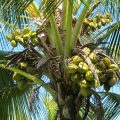The Makapuno embryo culture technology was developed by the late Dr. Emerita V. de Guzman of UP Los Baños in the 1960’s. The technology was initially aimed at rescuing the Makapuno embryos which do not germinate in situ due to abnormality of the endosperm. Upon the initiative of Ms. Erlinda P. Rillo, Chief of the the Tissue Culture Division at the Philippine Coconut Authority-Albay Research Center (PCA-ARC), this technology has been improved to benefit in the long run the Filipino coconut farmers and other people dependent on the coconut industry. Recently, the tissue culture team of PCA-ARC has developed a protocol which allowed to reduce the selling price of embryo cultured Makapuno seedlings to P300.00 each. This is a big step towards the development of Makapuno industry in the Philippines.
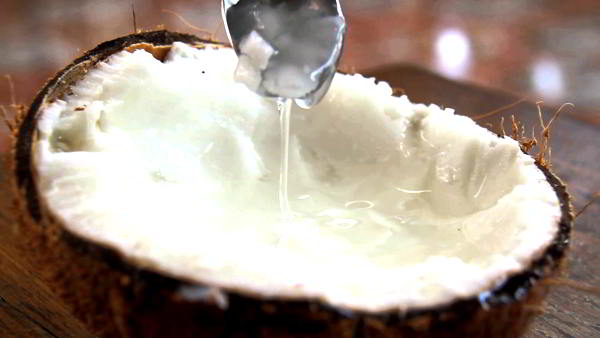
Makapuno coconuts are high value coconuts in the Philippines. It is priced up to 10x than the normal coconut. The high price is due to its relative rarity. Makapuno bearing palms are propagated by planting the “kabuwig” nuts (the nuts borne together with the Makapuno nuts in a bunch), which will give 2-21% Makapuno yield. True-to-type Makapuno palms yielding up to 98% Makapuno are only obtained by rescuing the normal embryo of the Makapuno nut and culturing it in vitro. The protocol takes about 2 years before an in vitro cultured embryo is ready for field planting.
There is a very high demand for Makapuno in the ice cream and pastries industries in the country. Jollibee Food
Corporation is another very big potential buyer in addition to the existing Food Processors that market the product here and abroad. Other food and non-food products could be developed from Makapuno once there will a volume for this activity.
With initial funding from the Deutsche Gesellschaft fur Technische Zusammenarbeit (GTZ) GmbH, a project to mass produce Makapuno seedlings using in vitro culture technique was started in January 1992 at PCA-ARC. It aims to provide more farmers with this high value planting material to increase their income. Unfortunately, Bicol is quarantined due to the presence of the coconut cadang-cadang disease in the region. Therefore, the project can only cater to the demands of farmers in this area. In June 1996, with funds from DOST-PCARRD, PCA-ARC implemented the “Makapuno Commercialization Program” which made possible the establishment of satellite laboratories in other parts of the country. Likewise, demonstration farms were established to show the coconut farmers the performance of embryo cultured Makapuno palms in various localities. More recently, with funds from the International Plant Genetic Resources Institute (IPGRI) – Coconut Genetic Resources Network (COGENT), an improved embryo culture protocol for the mass production of Makapuno was developed and is now being used in various Makapuno embryo culture laboratories in the Philippines and other COGENT-member countries. At present, 10,228 embryo cultured Makapuno has been field-planted in the country. With the culmination of DOST-PCARRD financial support to the program High Value Crops Council (HVCC) is currently funding the activities of the satellite laboratories.
The Tissue Culture Division of PCA-Albay Research Center also conducts trainings on general tissue culture and coconut embryo culture techniques to interested persons. Would be Makapuno planters are also assisted in establishing their farms.
It is highly imperative to continue supporting the activities of the laboratories because of the long gestation of the protocol. Once stopped, it will take two years again to continue producing the laboratory cultured seedlings. It is envisioned that a Makapuno- based industry will be developed in the country eventually diversifying the century dependent copra-based industry. It is high time that this highly commerciable coconut germplasm is capitalized to the benefit of the perennially exploited poor coconut farmers.
PCA-FUNDED MAKAPUNO EMBRYO CULTURE LABORATORIES
PCA-Albay Research Center Banao, Guinobatan, Albay
Contact: Mrs. Erlinda P. Rillo, Scientist II Division Chief III
Tel: (052)-484-6685 Tel/Fax: (052)-484-6687 Mobile Phone: 09198688934
E-mail: eprillo@globalink.ph
Source: Philippine Coconut Authority
